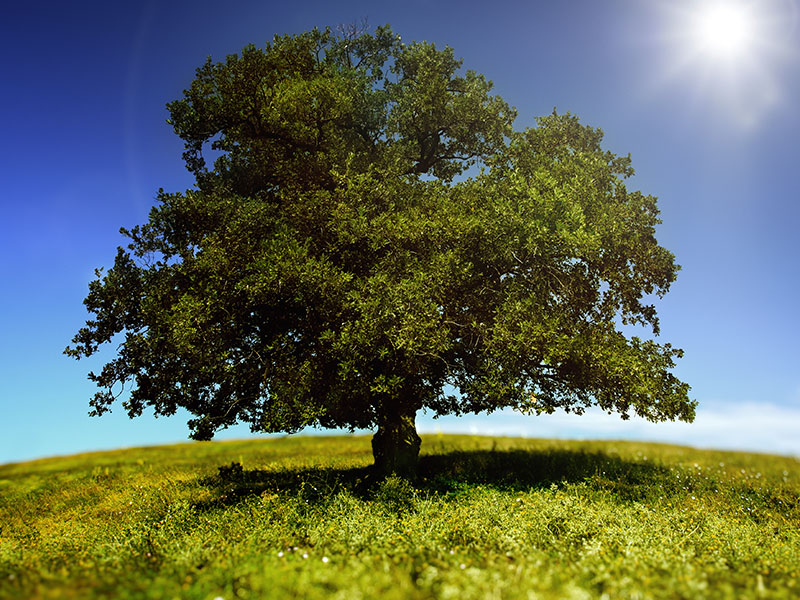Your landscaping arrangements can have a surprising impact on the performance of your heating and cooling systems. Used properly, trees, shrubs and other plants can provide shade and reduce the cost of cooling your Red Oak, Texas, home. The wrong configuration of trees, however, can limit the efficiency of your HVAC system. Here are some important ways in which trees can affect HVAC efficiency and the longevity of your system.
Reducing the Workload for Cooling Systems
The Department of Energy recommends planting trees for shade in warmer climates to reduce indoor temperatures and limit the amount of heat absorbed through roofs and walls. In Red Oak and the surrounding region, for instance, summertime temperatures in the shade can be 25 degrees Fahrenheit cooler than areas exposed to direct sunlight. By strategically planting trees to shade the western exposures of your house, you can potentially reduce the work needed to keep your home cool this summer.
Stopping the Breeze
Especially in areas that experience chilly winters, a line of trees can provide added protection against the wind. These windbreaks are also useful in creating an insulating perimeter around your home. Evergreen trees are most useful in providing a year-round wind barrier for your Texas property. Alternatively, if you depend on the breeze to keep things cool around your home in summer, avoid creating an unbroken line of trees that could potentially block the wind from reaching your windows and lowering indoor temperatures during the hottest days of the year.
Blocking Air Flow
Planting trees and shrubberies too close to your outdoor unit can block airflow to this important component of your home HVAC system. This can lead to overheating, reduced ventilation and many other issues that can affect the performance of your air conditioning system and may necessitate emergency repair services in some cases. Keeping shrubs, decorative grasses and trees well away from your air conditioner’s outside unit can prevent damage caused by heat buildup in these essential components of your cooling system.
You should also avoid creating a windbreak around your outdoor cooling unit. This can cause heat to build up in the area around the fan and condenser to increase the likelihood of breakdowns and failures. Your professional HVAC team can provide you with the most accurate guidance on the clearance needed for new heating and cooling systems, allowing you to plan your landscaping strategy accordingly.
Increasing Insulation
Shrubs, bushes and small trees planted close to the sides of your Dallas home can sometimes serve as an added layer of insulation to keep indoor temperatures lower in summer and warmer in winter. While it is not a good idea to plant too close to your HVAC equipment, other areas of your home may benefit from these advanced landscaping solutions. We can help you to determine the most effective placement for trees, bushes and shrubs if you must locate these landscaping items near your outdoor unit.
Choosing Between Deciduous and Evergreen
In hot climates, deciduous trees offer several advantages for landscaping and reducing the stress on hard-working HVAC systems. Because deciduous trees shed their leaves each fall, they can allow the sun’s rays to warm homes and buildings during the winter months while providing much-needed shade during the hottest parts of the year. Evergreen trees are best suited to areas where persistent shade and protection against the wind and weather are needed or where aesthetic preferences dictate a green space that remains throughout the year.
The furnace and air conditioner experts at Freedom Heating & Air can provide the most accurate advice and the best services for your HVAC system. We sell and install Trane and Mitsubishi Ductless systems designed specifically to suit your home and your budget. We can help you to achieve the most comfortable temperatures and the highest degree of HVAC efficiency possible. To learn more about how you can improve the performance of your HVAC system, contact Freedom Heating & Air online or call us at (214) 306-8456. We look forward to serving all your HVAC needs.


